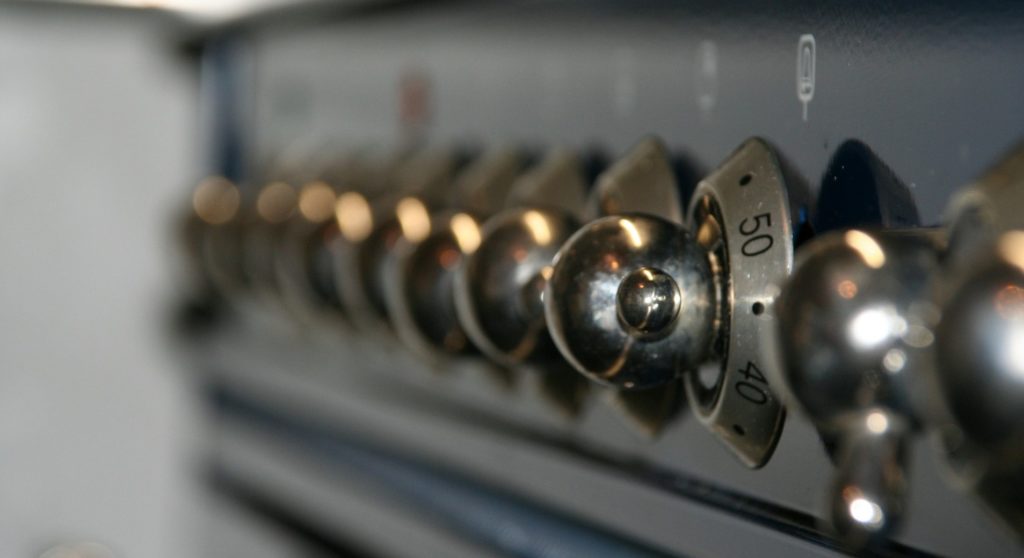You’ve moved to a new apartment in Chicago. Exciting, right? But when you try to light up your stove’s burner to fry eggs, you notice it won’t fire up. And when you hit Run on the dishwasher, you notice nothing happens.
Who’s responsible for the stove or the dishwasher in your apartment (or your rental property more generally)?
We deal with many kinds of renters in this situation. The most common include:
- The newbie: It’s your first time renting and you’re not sure if you or your landlord is responsible for fixing a broken fridge or stove.
- The lucky renter: You’ve had good experiences with landlords. So, while a broken appliance is an inconvenience, you’re confident your landlord will take care of it.
- The prevailer: You’ve had to learn how to advocate for yourself to get your landlord to take care of things.
- The blindsided: You’ve just called your landlord and she told you the repair is your responsibility. You had no idea she was going to say that, and you’re not sure if she’s right or not.
No matter which kind of renter you are, we’d like to help you navigate this question of responsibility, so you can get back to normal household functioning as quickly as possible.
The first thing you need to know is that there are really two questions here:
- What will my landlord pay to repair?
- What is my landlord legally required to pay to repair?
Learn more at Priority Appliance Repair, serving customers in Arlington Heights and Palatine.
Are Landlords Responsible for Appliances?
No, landlords are not necessarily responsible for appliances.
That may surprise you, especially if you’re a lucky renter. Most landlords will fix these problems without any fuss. However, state laws, including those in Illinois, do not assume that appliances are the landlord’s responsibility.
So, how do you know if you or your landlord is responsible for an appliance repair?
What is Considered an Appliance?
Let’s start by clarifying what we’re talking about. There are a lot of machines that serve important functions in your home, but when we talk about appliances, we only mean a few of them. These are sometimes called major household appliances:
- refrigerator
- oven/stove
- dishwasher
- washer and dryer
- air conditioning system or window units
In other words, we’re not talking about your furnace, microwave, or hot water heater. If a major household appliance breaks, you should call your landlord. If your blender breaks, well, that’s your problem to fix.
Is My Landlord Responsible for Appliance Repair?
Legally speaking, your landlord is responsible for two things:
- The terms outlined in the lease
- An implied warranty of habitability
Um…What’s an Implied Warranty of Habitability?
Obviously, you know what the lease is. The implied warranty of habitability is an assumption that the landlord will keep your rental unit livable for the term of your lease.
In Illinois, the implied warranty of habitability is established by case law rather than state legislature. In other words, a lot of what’s required is set by things like precedent or what a “reasonable person” would consider habitable rather than spelled out in a law book.
Things covered in the implied warranty of habitability include:
- Hot and cold water
- Working plumbing
- Working heat, especially in places like Illinois or Indiana where it gets cold in winter
- Sewage disposal system
- Working electricity
- Door and window locks
- Keeping the building up to code
- Roof, doors, and windows to keep bad weather out
If you’re having trouble with any of these things, your landlord should fix them for you.
What’s in Your Lease?
Chances are that if a major appliance came with the property your landlord will pay to fix it. If you bought it yourself, it’s yours to maintain.
However, if your landlord tells you an appliance was left by a previous tenant or gives you the option of keeping it or removing it, he may be hinting that it will be your responsibility.
The only way to know for sure is to check your lease agreement for an appliance clause. Some leases will say if a tenant uses the appliances, the tenant assumes responsibility for them. Others will list the appliances which the landlord will take responsibility for. Still others will not say anything, in which case you are relying on your landlord’s goodwill.
Some local municipalities may also have additional requirements for landlords, so you can also check with them.
Be a Wise Renter

Try not to be the blindsided renter.
Even if you’re renting from a parent or good friend, strive to be a wise renter. You can be a wise renter in two ways:
- Take good care of your appliances, especially your major hoursehold appliances. Dishwashers and refrigerators will last a long time, especially if you maintain them.
- Ask for certain things to be spelled out in the lease. This is especially true when it comes to who will pay for what.
To follow up on 2: If there is no appliance repair clause or addendum in your lease agreement, it doesn’t hurt to ask for one to be added before you sign or renew it.
How Long Does My Landlord Have to Fix an Appliance?
How long does my landlord have to fix something?
Well, as long as a repair is required under the lease or under the implied warranty of habitability, landlords in Illinois must make repairswithin 14 days of receiving written notice.
That bit about “written notice” is kind of important. Without getting too bogged down with details, here’s a pro tip: Emails and texts may not be considered legally binding unless you can establish that your landlord agreed to accept them as such and that he received the message. Always make sure your landlord replies to an email or text when it comes to a repair situation.
What Should I Do If My Landlord Won’t Repair My Appliance?
This is where it gets very important to know your landlord and your lease. If your landlord isn’t taking action, that means you will need to, which means you will be incurring some up-front costs. You’ll want to take the right steps to protect yourself. You may wish to seek legal aid or learn more on a legal assistance website.
In general, you’ll want to make sure you have provided the landlord with legal written notice. The easiest way is to send it via certified mail so you have a receipt. If you have written evidence that your landlord accepts an email or text as written notice, then you’ll also want to make sure you have a reply from the landlord indicating he received your notice.
If it’s been 14 days and your landlord still hasn’t fixed the problem, you can pay to have the repairs done yourself. Keep good records and send a copy of the receipt to your landlord. Then you can deduct the amount from the next month’s rent.
Note that in Illinois, repairs deducted from rent like this must be done by a licensed professional and be considered “reasonable.” Illinois defines “reasonable” as whichever is less: $500 or half of one month’s rent.
Will My Renters Insurance Cover Appliance Repairs?
If the repair is your responsibility, then you will probably have to cover the cost of the repair yourself.
Your renters insurance kicks in if there’s a natural disaster, fire, theft, vandalism, and so on—things outside daily-use scenarios. If your dishwasher breaks and causes flood damage, then the flood damage will probably be covered, not the dishwasher.
While we’re talking insurance, though, here’s another pro tip: Try to get coverage for the replacement cost of your items rather than the actual cash value. If your ancient washer gets destroyed in a fire, you want help buying a new one, not a few bucks for the value of the old one.
How Has Your Landlord Dealt with Appliances in Need of Repair?
How has your landlord handled appliance issues or breakages? Has she fixed them, no questions asked? Or did she make you foot the bill? Let us know by contacting us.
At Priority Appliance Repair in Deerfield, we encourage tenants to be renters of the prevailer variety. Advocate for yourself. In the event of your appliance breaking, you’ll be grateful for your vigilance. If you are in need of any repairs please schedule online here!

